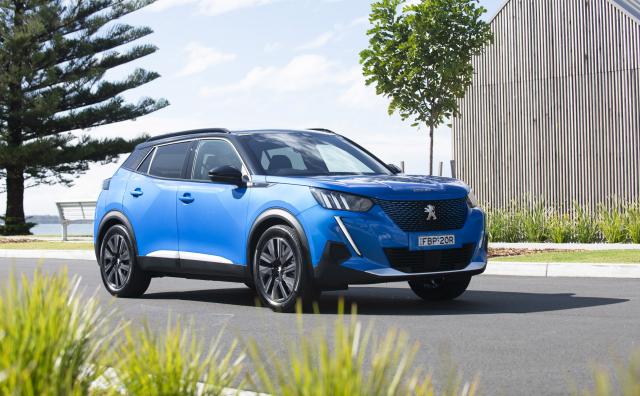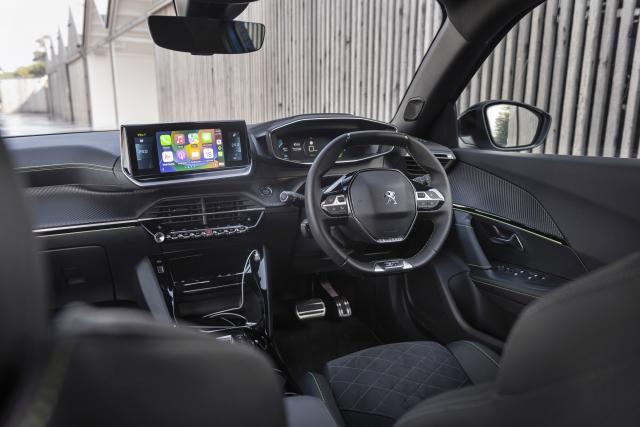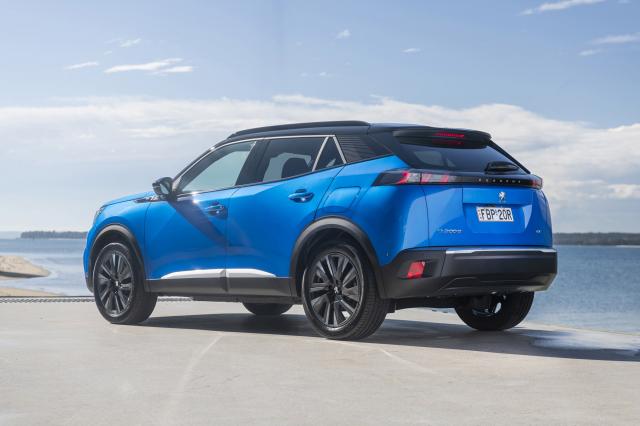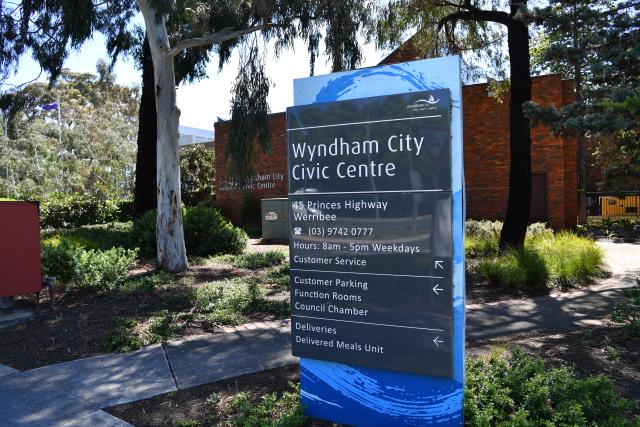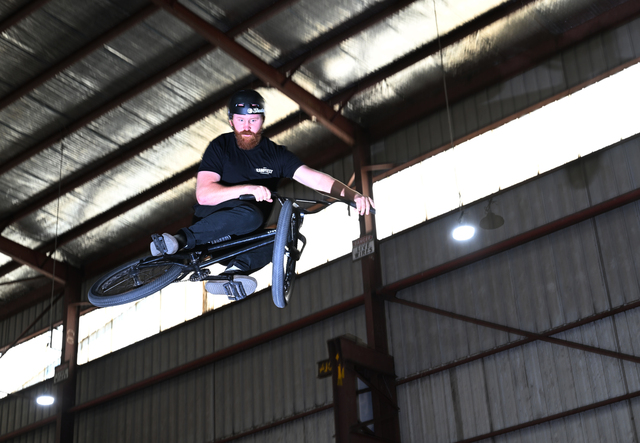Launched here in September 2023, the e-2008 is Peugeot’s first fully electric passenger.
A compact SUV, it joins the e-Partner compact electric van as well as the Plug-In Hybrid (PHEV) versions of the 3008 SUV and 508 sedan.
Future electrified models will follow in 2024 with the launch of E-208 hatchback, E-3008 mid-sized SUV, e-Expert medium van and 408 PHEV.
The petrol-powered Peugeot 2008 has been on sale here since 2020. It comes in two variants, Allure and GT both with a PureTech 130 engine that generates 96 kilowatts of power and 230 Newton metres of torque mated to a six-speed automatic transmission.
The previous GT Sport model, with a more powerful (114 kW/240 Nm) engine was dropped from the range in 2022 to effectively make way for the e-2008.
STYLING
Peugeot 2008 is a stunning looking car from every angle. The front is large and expansive grille with a complex chequered louvered-style fill. The window lines swoop up beautifully as they pass the centre of the rear doors. The wheel arches are large and carry black lips to emphasise that it’s an SUV.
Interestingly, the e-2008 bucks the current trend in EV design where the front is closed off, by retaining the grille from the petrol variants. It’s only there for cosmetic purposes with the only difference being that the fill matches the body colour.
There are large scallops in the doors and a black panel all the way across the rear that carries large lights. The roof extends beyond the glass top and sides to give a sort of spoiler look.
The e-2008 comes with 18-inch Evissa black diamond cut alloy wheels.
INTERIOR
Although it’s classed as a five-seater, like most cars of similar size the 2008 is more a four-plus-one. Those in the front seats might have to give up some legroom to make better space for tall rear travellers.
The e-2008 comes with the latest version of the Peugeot i-Cockpit which combines the small sport steering wheel with a large head-up instrument panel and central infotainment touch screen, blended together and ergonomically positioned.
The front seats are heated with power adjustment for the driver seat, which includes lumbar and massage.
The e-2008’s boot has the same volume as the petrol models. That’s 434 litres with all seats in use, and 1467 litres with the 60:40 rear seats both folded down, although they don’t fold flat. There’s a slim out-of-sight area below the floor ideal for storing the charging cables.
The petrol 2008s get a space saver spare wheel but the e-2008 only has a tyre repair kit.
POWERTRAIN
The e-2008 is based on Peugeot’s Common Modular Platform and combines a 50 kWh battery with a 100 kW front-mounted electric motor driving the front wheels to provide up to 260 Nm of torque with a driving range of up to 330 kilometres using the WLTP test regime.
There are three driving modes Sport, Normal and Eco.
The charging point is located at the rear passenger’s side and has the usual AC and DC sockets. With three-phase power and a 16A Wallbox the maximum charge rate is 11 kW for a charge time of around five hours. Using a 7.4 kW 32A Wallbox that increases to 7.5 hours and, with a 10A domestic electrical power plug, full charge will take around 24 hours.
Using a commercial DC 100kW quick charge 0 to 80 percent can be achieved in about 30 minutes.
SAFETY
The e-2008 hasn’t been ANCAP tested but the petrol variants were tested in 2019 and received the maximum five-star rating.
Safety consists of six airbags, a rear-view camera, autonomous emergency braking and advanced grip control with snow, sand and mud modes.
There’s also driver attention alert, forward collision warning, blind spot warning, lane departure warning, lane keeping assistance, in-crash braking, auto hazard light activation and tyre pressure monitoring.
The e-2008 adds adaptive cruise control, enhanced autonomous emergency braking, active lane following assist, and acoustic vehicle alerting system which generates an audible signal outside the vehicle for pedestrian safety.
Missing is rear cross traffic alert and a 360-degree camera.
Two ISOFIX child seat anchors along with three top tethers are provided.
INFOTAINMENT
Peugeot e-2008 gets a large 10-inch horizontal infotainment screen that is clear and reasonably easy to use. Our preference is always a vertical screen because you can see much more without the need to scroll, but the Peugeot does work better than most.
There’s Apple CarPlay and Android Auto smart phone mirroring, as well as DAB+ radio and satellite navigation.
DRIVING
Entry is quite easy even for larger occupants and the seats are large, supportive and comfortable.
Like all other electrified vehicles, the instant torque provides exhilarating speed off the mark. The dash to 100km/h takes fairly modest 9.0 seconds, well below that of most of its competitors.
The car’s regenerative braking can be accessed through a button on the centre console rather than the more convenient steering wheel paddles of most EVs. It does not have a single-pedal mode.
The battery adds 324kg on to the tare weight of the e-2008 when compared with the petrol 2008.
There’s a sedate feel in the cabin during normal driving that almost feels like you’re in a larger car, even a prestige car at times. The French do like their comfort and this shows up beautifully. That’s despite the slightly sporty set up in the suspension.
On the open road with twisty bits, it handles nicely and gives feedback through the steering wheel. On motorways its smooth and almost silent, bump-thump is felt through some joints in other ones it’s fine.
SUMMING UP
Although the e-2008’s combination of price ($60k) and range (330km) compares poorly against its Chinese rivals that are getting under the $40k mark and in excess of 400km it will still appeal to the loyal band of Peugeot fans looking at moving into an EV for the first time.
As with all Peugeot vehicles, the e-2008 comes with a five-year, unlimited kilometre warranty and eight-year 160,000 km battery warranty.
RATINGS
Looks: 9/10
Performance: 8/10
Safety: 8.5/10
Thirst: 7.5/10
Practicality: 8/10
Comfort: 8/10
Tech: 8/10
Value: 7.5/10

